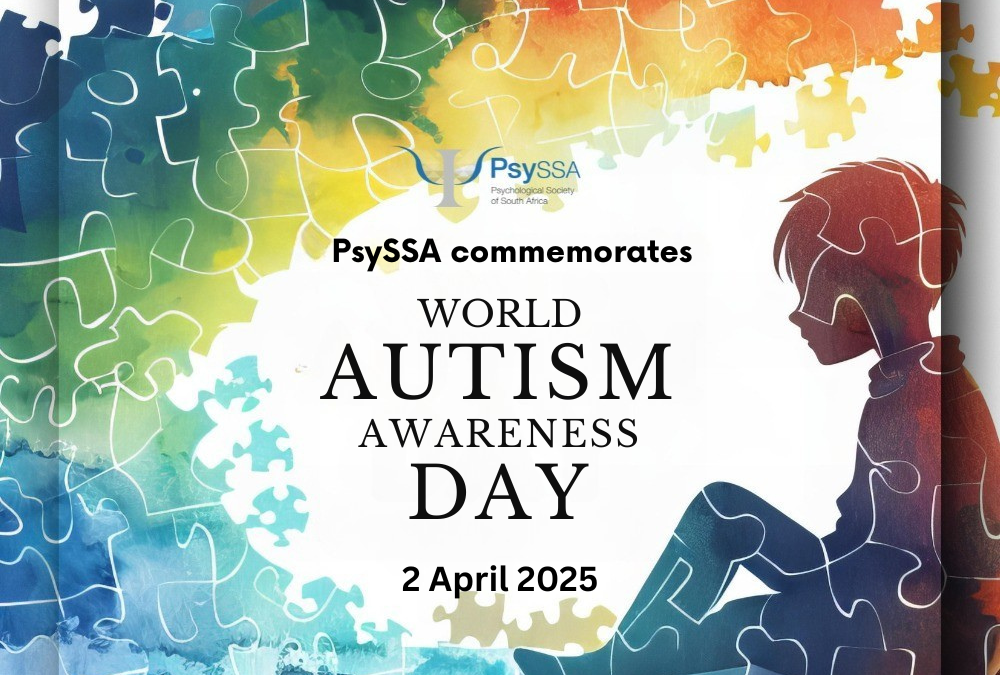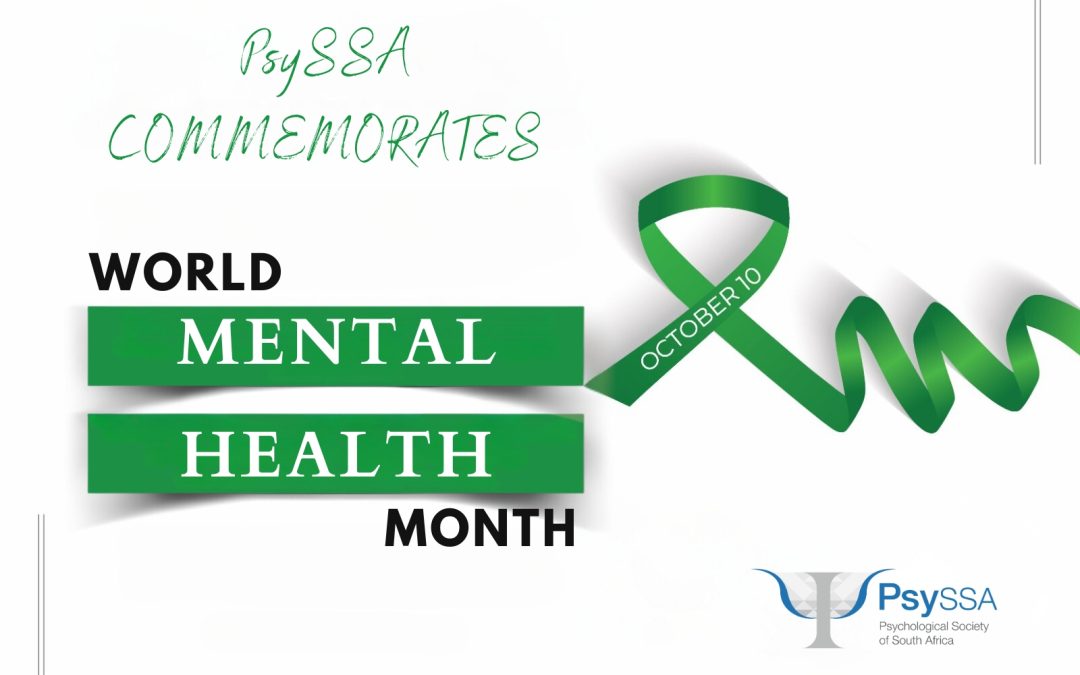
World Autism Awareness Day – 2 April 2025
PsySSA Commemorates World Autism Awareness Day
2 April 2025

Beyond awareness: Fostering true acceptance of autistic individuals
By: PsySSA’s Division for Research and Methodology
On 2 April, World Autism Awareness Day serves as a global reminder to foster a deeper understanding of autism (World Autism Awareness Day | Autism Speaks, n.d.). However, awareness alone is not enough. Autistic individuals continue to face systemic barriers in education, employment, and healthcare – barriers that persist because society has been slow to move from awareness to genuine acceptance and meaningful inclusion.
The weight of masking and fitting in
For many autistic people, navigating daily life requires masking: they suppress or alter their natural ways of being to conform to neurotypical or non-autistic expectations (Pearson & Rose, 2021). Seers and Hogg (2023) discussed how masking is used as a strategy for social survival rather than mere conformity. One participant in the Seers and Hogg (2023) study describes the relentless strain of masking as follows:
When I think about the mask, I don’t know which bit is the mask, which bit is myself, and which parts of the mask have fused to myself and become indistinguishable from it. It is only in the privacy of my own mind that I allow myself to express what might be the real me. (p. 31)
This highlights the emotional toll of constantly performing neurotypical behaviours simply to be accepted. People with autism often describe masking as physically and emotionally exhausting, leading to burnout, anxiety, and depression (Beck et al., 2024; Lupindo et al., 2023; Seers & Hogg, 2023).
Challenges in healthcare settings
While autistic people experience difficulties navigating educational (Goodall, 2018; Karrit & Coetzee, 2025) and work (Lupindo et al., 2023) spaces, healthcare settings present another significant challenge. Beck et al. (2024) and Øverland et al. (2024) found that participants with autism frequently report feeling misunderstood or dismissed in healthcare settings. Participants in their research articulated a deep need for health care services that validate their experiences rather than pathologise them (Beck et al., 2024).
Moving forward: A call for meaningful change
True acceptance requires more than symbolic gestures: it demands systemic change. Inclusion should not be framed as a favour or accommodation but as a fundamental right that ensures autistic individuals can participate in society without compromising their authenticity (Beck et al., 2024). As expressed by a research participant in Beck et al. (2024), “You’re hurt and people don’t try to understand things from your perspective. It’s like you’re expected to understand things from their perspective, but there’s no effort on the other person’s part.” This lack of reciprocal understanding underscores the urgent need for spaces where autistic individuals are not only heard but actively supported.
Imagine feeling completely alone in a room full of people, constantly suppressing who you are to avoid rejection. For many autistic individuals, this is not an occasional experience but a daily reality. By fostering empathy, embracing neurodiversity, and creating inclusive spaces, we can ensure that autistic people are not just acknowledged but truly accepted and valued.
This World Autism Awareness Day, let’s commit to understanding. Let’s move beyond awareness to create a society where autistic individuals can thrive – not by changing who they are, but by changing how the world sees them.

World Autism Awareness Day
By: PsySSA’s Division of Neuro and Forensic Psychology
Autism Spectrum Disorder (ASD) is defined by the DSM 5-TR as a neurodevelopmental condition characterised by persistent deficits in social communication and social interaction across multiple contexts, alongside restricted, repetitive patterns of behaviour, interests, or activities. While these symptoms are present from early childhood, diagnosis can occur depending on knowledge and access to care at various points in life. These symptoms cause significant impairment in social, occupational, or other important areas of functioning.
Considering the diagnosis occurs along a spectrum, no two individuals are alike. The severity of the disorder is determined based on the level of support needed, ranging from requiring minimal support to substantial support. The presentation of ASD can vary greatly between individuals, some may have challenges with communication, social interaction, or sensory processing, while others may have remarkable talents and abilities in areas such as art, music, technology, and more. Some may have intellectual disabilities or language delays, while others may have average or above-average intelligence and advanced language skills.
It is through understanding and acceptance that we can truly appreciate these differences and create inclusive environments where all individuals have the opportunity to reach their full potential. On World Autism Day, we come together to honour and celebrate the unique perspectives, abilities, and strengths of individuals on the autism spectrum. This day serves as an important reminder that autism is not a barrier, but rather a different way of experiencing and interacting with the world. It is an opportunity to recognise the richness of diversity in human experiences, and to break down the stereotypes and misconceptions that often surround autism.
South African organisations like Autism South Africa and Autism Western Cape, along with others work tirelessly to support those with the diagnosis as well as their families, while educating society and breaking down stigma. The Autism Parenting Magazine is also a fantastic resource for parents unsure of where to go next or how to overcome challenges which they are grappling with. Worth noted as well were the professional group discussion videos made by the SASCP division.
As we reflect on this day, let us commit to fostering compassion, respect, and inclusion for all individuals on the autism spectrum. Let us build a world where neurodiversity is celebrated, where people are empowered to be their authentic selves, and where communities come together to support each individual’s journey. By creating spaces of belonging, we enable individuals with autism to thrive, contribute, and lead fulfilling lives.
Together, we can make a world that recognises and values the talents, perspectives, and humanity of every person, regardless of their neurological makeup.



